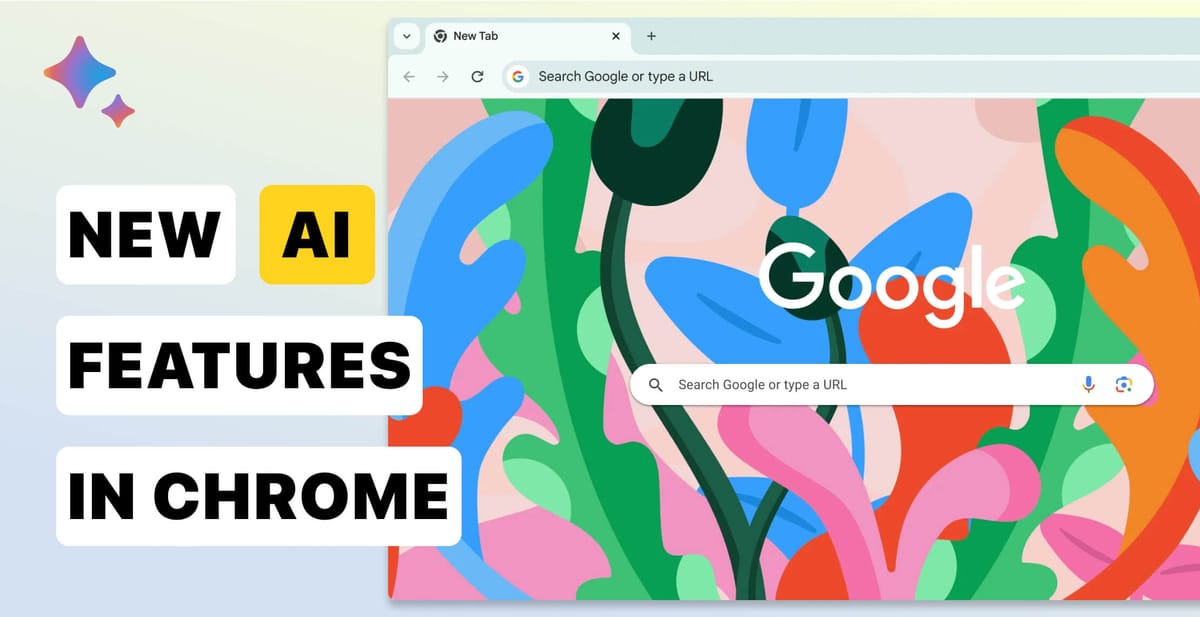
Google today announced several new AI features coming to its popular Chrome web browser over the next few few days. The updates aim to help users organize tabs, customize themes, and compose messages using the latest in generative AI.
One of the most common pain points for Chrome users is tab overload. It's easy to end up with dozens of open tabs across various tasks. Chrome's new "Tab Organizer" uses AI to automatically group similar tabs to declutter the browser.
The AI analyzes page content and suggest tab groups. For example, if you have tabs open for travel planning, research, and shopping, Chrome may create separate groups for each task.
Users can also manually trigger tab grouping by right-clicking a tab and selecting "Organize Similar Tabs." The AI doesn't stop there; it even suggests names and emojis for these groups. By automatically clustering related tabs behind the scenes, Tab Organizer hopes to simplify unwieldy browser windows.
The next AI feature is all about personalizing Chrome. Remember those generative AI wallpapers from Android 14? Google is bringing that same capability to Chrome. The new tool allows generating on-demand themes using text prompts specifying mood, style, colors, and subject matter. For instance, users could request a "serene, animated aurora borealis" to produce one-of-a-kind borealis-themed backgrounds.
While Chrome extensions already enable installing pre-made themes, AI theme creation puts stylizing your browser into your own hands without specialized graphic design expertise. It's a creative and fun way to make your browsing experience uniquely yours.
Rounding out the updates is an AI writing feature to help compose messages on the web. A user can simply right-click text fields on any site to access the new "Help me write" feature.
Similar to AI chatbots like ChatGPT, the tool can generate paragraphs of text from a few starter words. The idea here is that for simple tasks, rather than hopping over to their preferred chatbot, users will be able to stay in their flow and simply use the built-in feature.
While still experimental, the latest additions reflect a broader industry trend where AI is becoming an integral part of existing digital tools. Over the last year, all major browsers (except Safari) have integrated some generative AI features into their products. In fact, Microsoft has now rebranded Edge as an AI browser with its GPT-4 powered Copilot deeply integrated throughout.
As the technology evolves and competitors like Microsoft continue to innovate, it will be interesting to watch how Google further leverages its more capable models like Gemini to enhance Chrome and stay competitive in this race.

